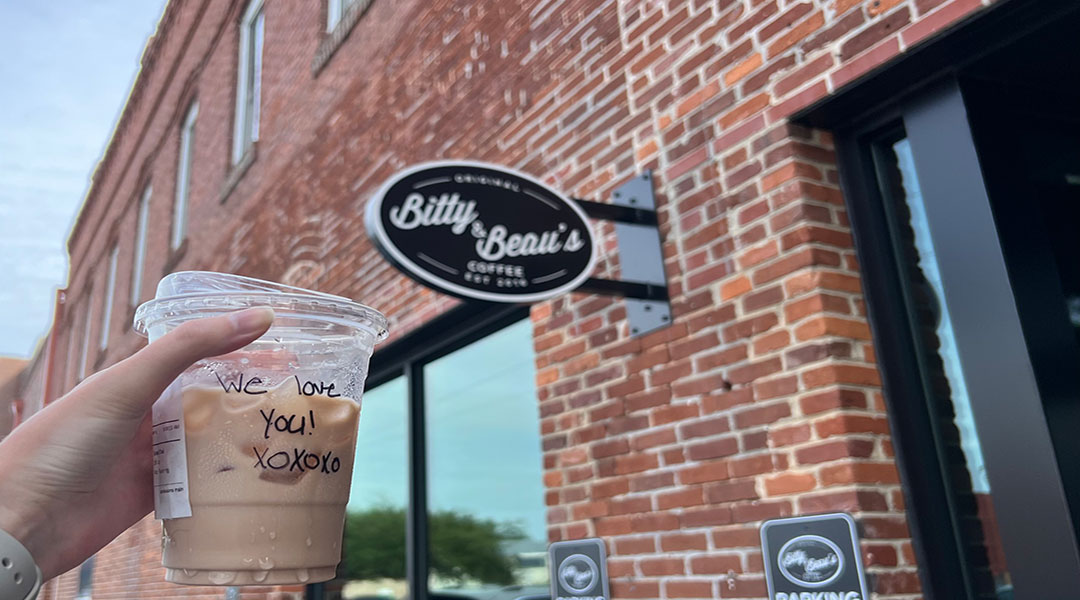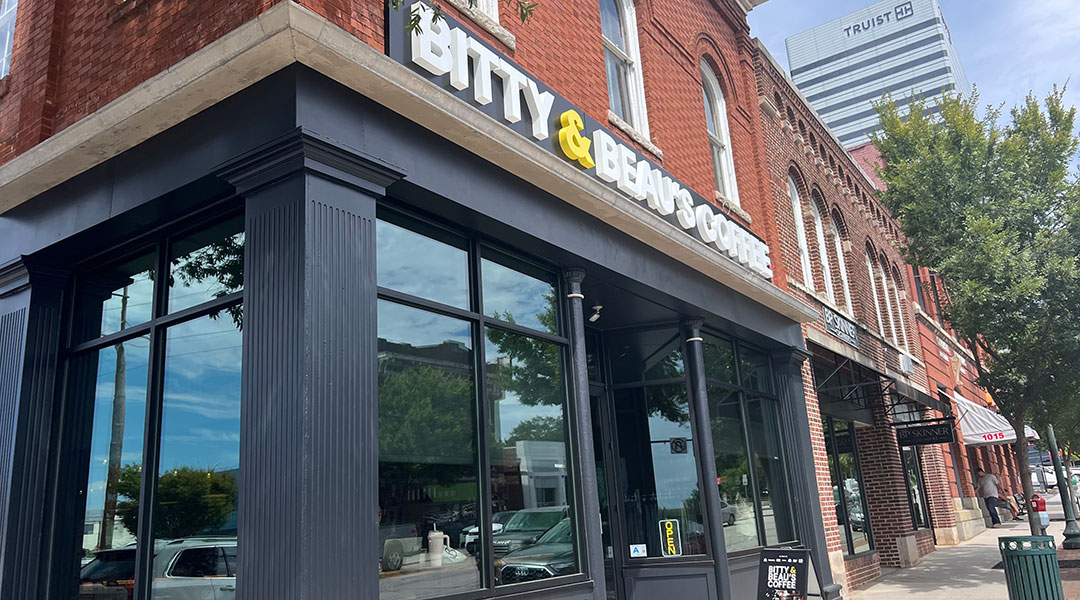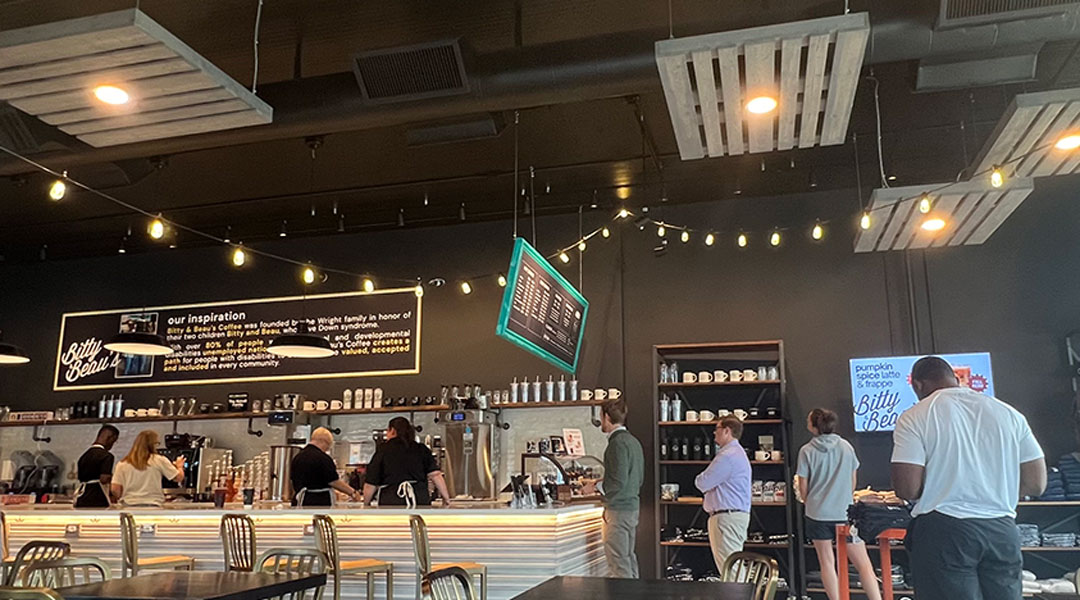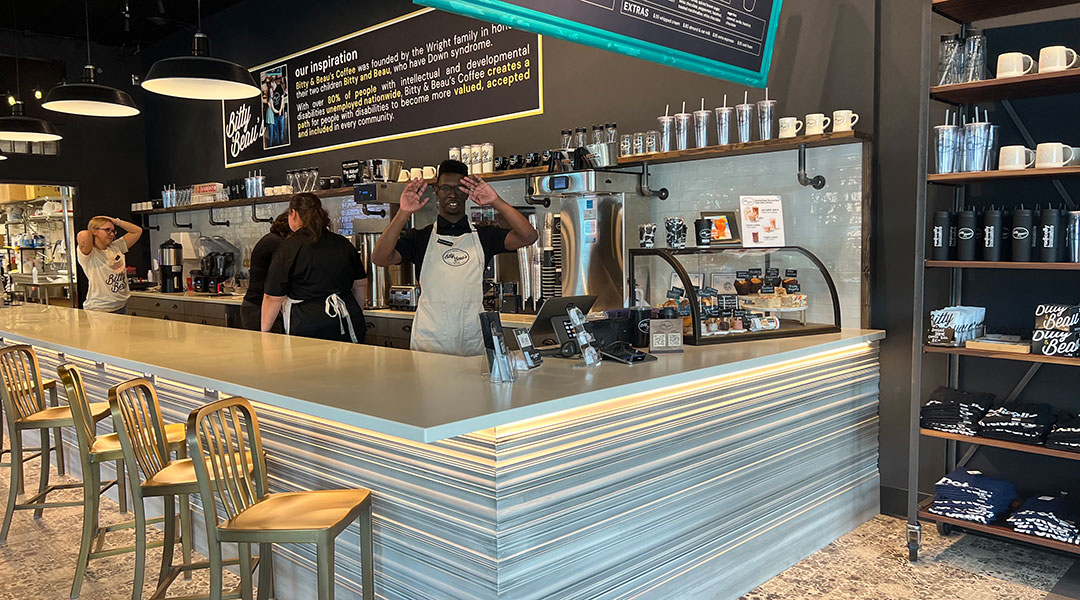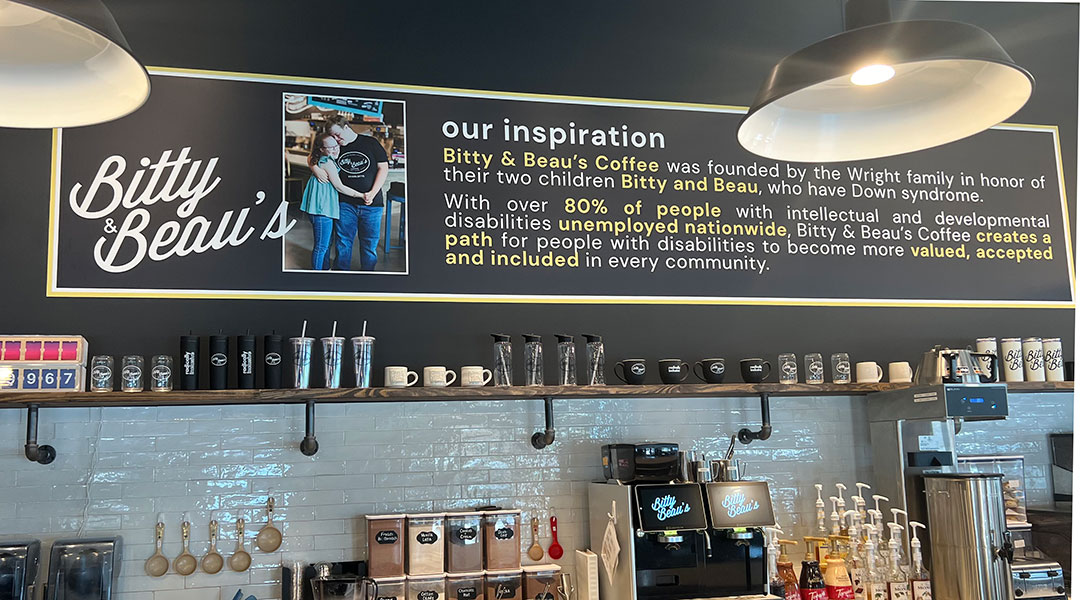Positive interactions between customers and employees have helped build a sense community surrounding Bitty and Beau’s. (Photos by Mollie Naugle / Carolina News & Reporter)
Customers aren’t asked for their name or given a number when they place their orders at Bitty and Beau’s in downtown Columbia.
They are given a laminated playing card.
The barista calls out the card once the order is ready — “King of hearts!” “Six of diamonds!” “Eight of spades!” It’s a kind of everyday magic trick that makes the coffee shop stand out to customers.
But Bitty and Beau’s doesn’t need magic to make the coffee shop unique.
The national chain describes itself as a “human rights movement disguised as a coffee shop.” With 18 locations in 11 states, the chain was founded in 2016 with the mission of creating an environment where people with disabilities are valued and can thrive in the workplace.
The Columbia location opened in the Vista in May 2024. Shift leader Emilee McCoy said the community has embraced the coffee and pastry shop.
“I’ve watched people come in and not know what this place is,” McCoy said. “I’ve watched customers come in, and their interactions with our employees have brightened their moods or made them have a better day. It’s always noticeable.”
The employees benefit from customer interactions, too. Kevaughn John said “making people laugh” is the best part of working there as a barista.
Including people with disabilities in the workplace is crucial to building community, said Mary Alex Kopp of Able South Carolina, a disability advocacy organization.
“If you’re talking about wanting to be truly inclusive, you must include people with disabilities in your hiring practices,” Kopp said. “I very much believe in the importance of community and community building. But that only works if you’re including the community as a whole.”
Audrey Brown from the South Carolina Vocational Rehabilitation Department said seeing past people’s disabilities and focusing on what they can offer in the workplace can help foster acceptance and advance inclusion efforts. “I think the biggest thing is just being aware that disability does not mean inability, just a different ability,” Brown said. “Being open to looking at what a person can bring to the table is the key in strengthening those relationships.”
Government action also has helped create job opportunities for people with disabilities. South Carolina in May 2022 became the 12th state in the United States to ban a subminimum wage for the disabled that is less than everyone else’s $7.25 per hour.
Disability rights groups across the state had lobbied hard for the change.
Kopp said the ban helped decrease the state’s unemployment rate among disabled people and contributed to a trend in workplaces becoming more open to hiring people with special needs.
“A lot of that has to do with the direct advocacy work of people with disabilities for their expectations to be able to join the workforce,” Kopp said. “South Carolina is really a leader in disability employment as far as working in the last few years to create new laws that will improve disability employment outcomes.”
She said there is still work to be done through teaching companies how to accommodate disabled employees, advocating for a nationwide subminimum wage ban and ensuring that job opportunities for disabled people integrate them into their communities.
The efforts of businesses like Bitty and Beau’s toward these goals hold a special meaning for Lexi Blakeman, a customer at the coffee shop.
“My sister’s actually special needs,” Blakeman said. “I grew up thinking she could never really have a job or be able to hold on her own. So knowing that she can come here or to a place like this and in the future she could hold on her own, it’s nice to know.”
Bitty and Beau’s is a national chain that opened a location in Columbia in May 2024.
Customers have embraced Bitty and Beau’s presence in the Columbia community.
Bitty and Beau’s is part of an increasing number of businesses becoming more open to hiring people with disabilities.
Bitty and Beau’s describes itself as “a human rights campaign disguised as a coffee shop” and was founded with the mission of creating a safe workplace environment for people with disabilities.

